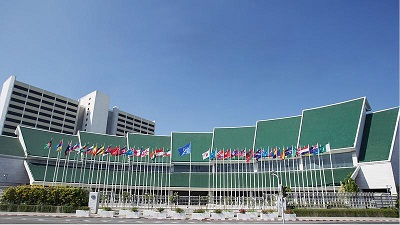Bangkok, (Asian independent) The United Nations Economic and Social Commission for Asia and the Pacific (ESCAP) opened its 80th session in Bangkok on Monday, with global and regional leaders calling for digital innovation to bolster the effort required to achieve the Sustainable Development Goals (SDGs) by 2030.
“Intelligently deployed and properly governed digital solutions, based on a common understanding, shared approaches and collaborative governance, form the foundations for the collective push necessary for the attainment of the 2030 Agenda for Sustainable Development,” said Armida Salsiah Alisjahbana, executive secretary of ESCAP, Xinhua news agency reported.
The Asia-Pacific region is at the forefront of a global digital transformation. Innovations in cognitive digital technologies, digital finance, government technology and the Internet of Things are reshaping business and public services. In the finance sector alone, the value of digital transactions is projected to reach 6.7 trillion U.S. dollars by 2026.
“We need transformative change. Digital innovation has become a vital tool for us all to achieve that change. At the same time, we must ensure that digital innovations benefit all and truly contribute toward sustainable development,” Thai Prime Minister Srettha Thavisin noted.
UN General Assembly President Dennis Francis underscored the importance of digital inclusivity and closing the digital divide in a video message, adding that access to smartphones and digital connectivity can no longer remain luxuries for a few, but necessities for all.
Heads of state and government from Bangladesh, Cambodia, Laos and the Philippines underscored several priorities for governments when it comes to leveraging digital innovation, such as inclusive policies to bridge the digital divide and persistent inequalities, more effective resource mobilization and financing, and strengthening regional cooperation and knowledge-sharing.
“Issues such as the digital divide, data privacy and cybersecurity must be addressed to ensure that the benefits of technology are accessible to all and that our digital infrastructure is resilient and secure,” said Mongolian Foreign Minister Batmunkh Battsetseg, who was elected Chair of the session.
More than 800 participants from 61 member states, associate members and permanent observers are attending the session this week.
The session is expected to endorse four resolutions on Friday, covering digital innovation and sustainable development in countries in special situations, among others.








